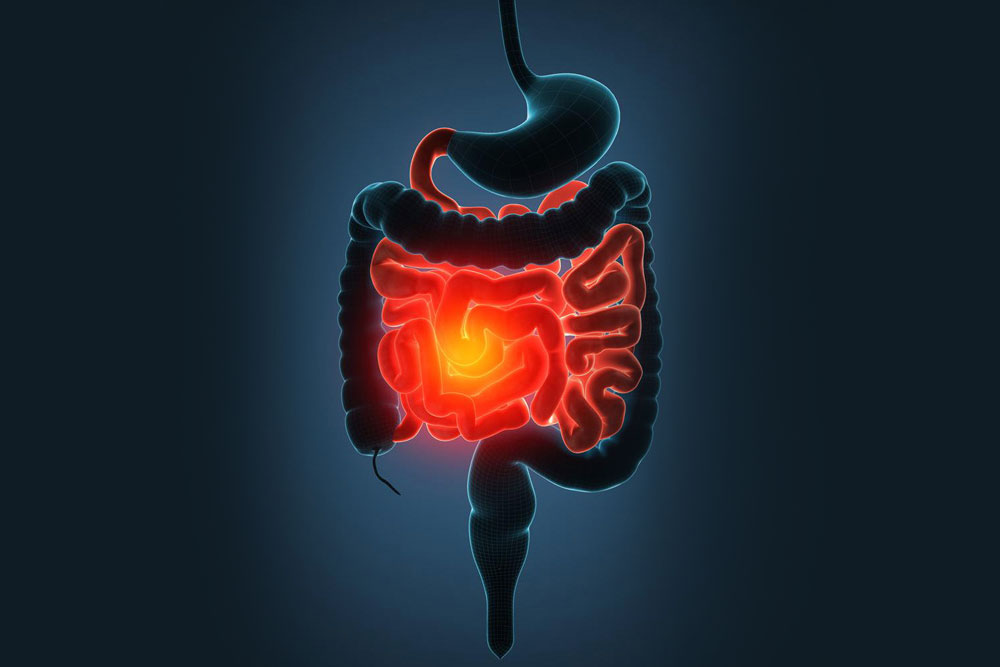Foods That Can Aggravate Colitis Symptoms
Inflammation of the inner lining of the colon characterizes as colitis. This is a chronic digestive disease. In the year 2015, it was estimated that 1.3% of adults in our country i.e. around three million people reported being diagnosed with inflammatory bowel disease (IBD). This IBD was either Crohn’s disease or ulcerative colitis.
Ulcerative colitis (UC) is a type of colitis that can cause intense abdominal pain, loss of appetite, and even diarrhea.

There are some foods that you must absolutely avoid in order to refrain from triggering the pain and discomfort of this illness. Here is the list of those trigger foods:
Foods with sulphur
Sulfur or sulfate can cause the production of gas in the stomach. This gas will irritate the stomach lining and lead to intense abdominal pain. Sulfate feeds on a certain bacteria that creates hydrogen sulfide (H2S) gas in those suffering from UC. This process of sulfur in food converting into hydrogen sulfide is called fermentation, and it has adverse effects on the bowel, and as a result, aggravates the colitis.
Foods to avoid in this category would be dairy products like milk and cheese; cruciferous vegetables like broccoli, cabbage, and cauliflower; raisins, red meat, bread, pasta, and peanuts.
Caffeine
Caffeine is known to be a stimulant. It has the ability to speed up the transit time in the colon which forces a frequent bowel movement. For someone suffering from ulcerative colitis, this can be an irritant and lead to more complications. Caffeine is found not only in coffee but also in tea, chocolates, and all energy drinks as well. While some may be addicted to caffeine, it is best to suppress that urge, and instead go for something healthier like vegetable juices that have many nutrients.
Gluten
Gluten intolerance is a medical complication that has come up in recent years. As it is becoming more and more common and can trigger digestive symptoms, it is safe to stay away from these foods. Foods that contain gluten also have something called fructan which is known to aggravate irritable bowel syndrome and hence is another reason to keep your diet gluten-free.
Gluten is generally found in rye, wheat, and barley, but is also common in many other products like pasta, bread, cereals, grains, baked goods, and packaged foods. Read the ingredients when you are buying anything from the store, and make sure this protein is missing from the list.
High-fiber foods
Fiber, as known, is great for digestion, but for someone suffering from UC, this exact property can cause a flare-up and lead to inflammation. A low-residue diet is required for those living through UC, as it can reduce stress symptoms like abdominal pain and cramping.
What are some of the foods that you can avoid?
Anything made out of whole-grain like bread, noodles, cereals, pasta, and macaroni should be avoided. Other whole-grain foods would be brown rice, oats, wild rice, buckwheat, and quinoa.
There are also some high-fibrous fruits and vegetables that you should keep away from as they too may aggravate your symptoms.
Nuts and seeds
These are difficult to digest by those suffering from ulcerative colitis. They need a lot of energy to burn, and often leave residue in the digestive tract that can lead to a flare-up. A low-fiber diet does not leave space for any nuts or seeds on your plate.
Avoid consuming walnuts, pistachios, peanuts, cashews, almonds, pecans, macadamia nuts, flax seeds, pumpkin seeds, pine nuts, sunflower seeds, and any other nuts that you may be aware of.
While your doctor will prescribe the right medications for you, until you follow a strict diet, the symptoms of ulcerative colitis will not subside and will recur frequently. Eat vegetables that are cooked, and choose refined grains over whole grains, and stick to a low-residue diet!




